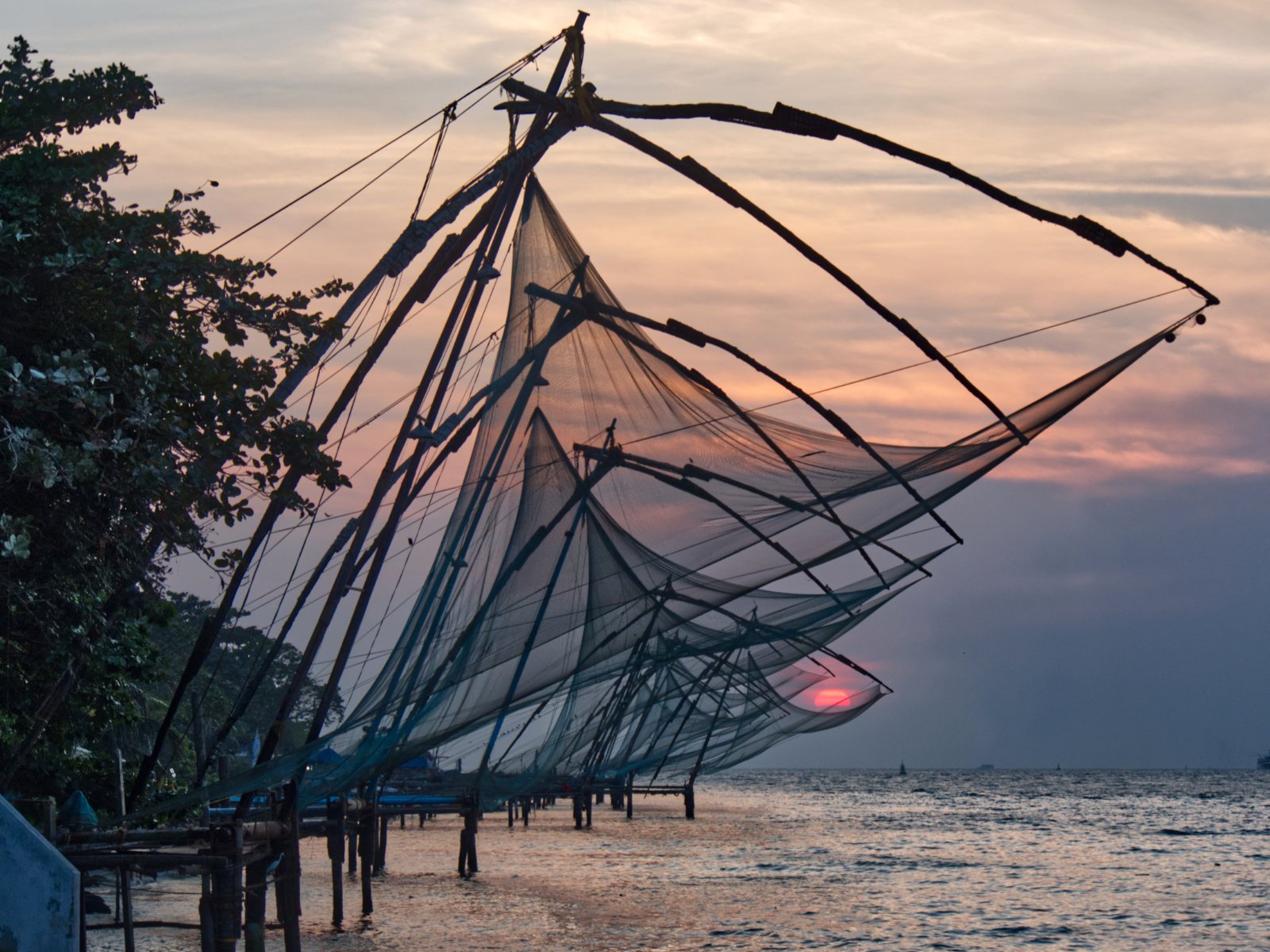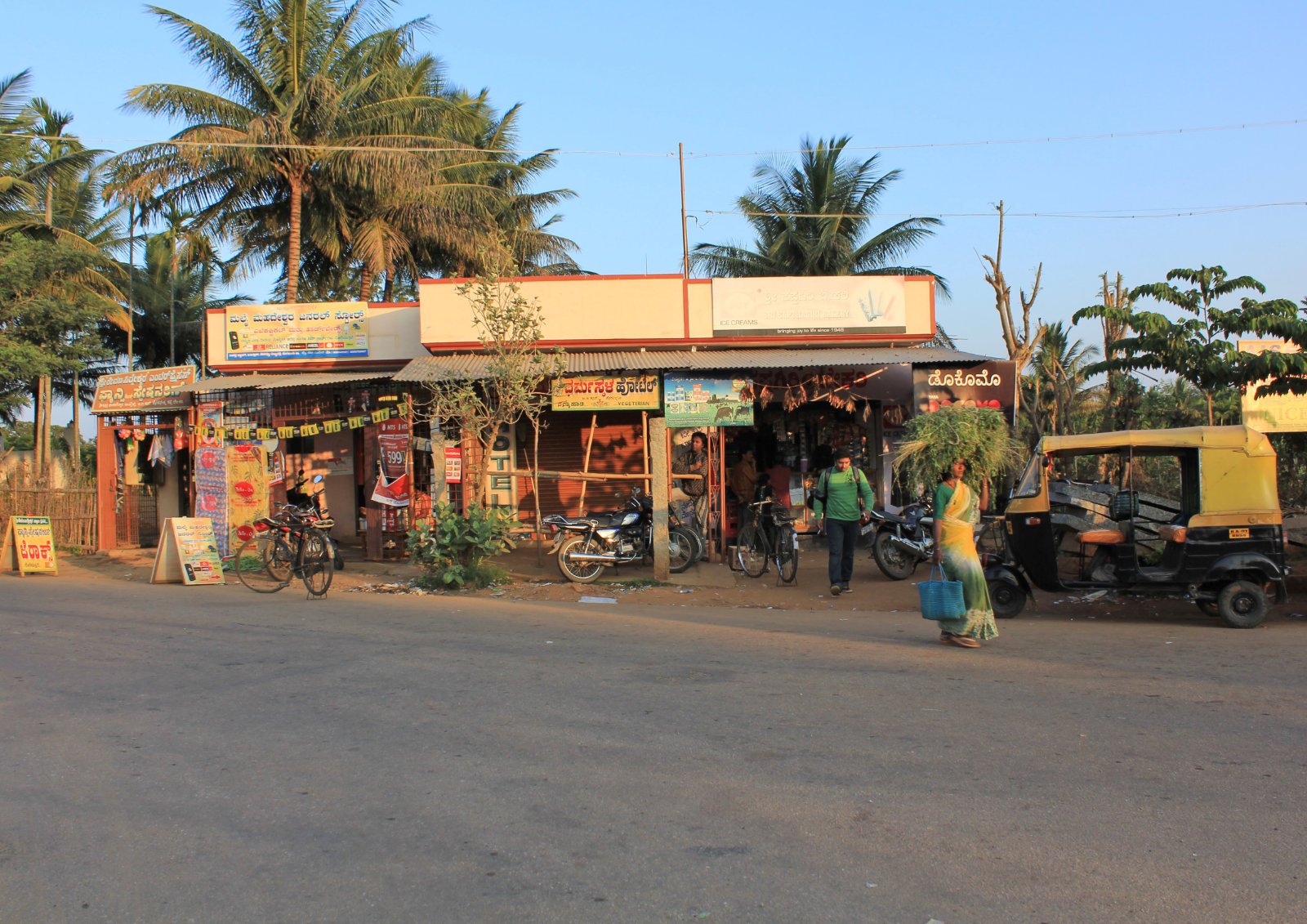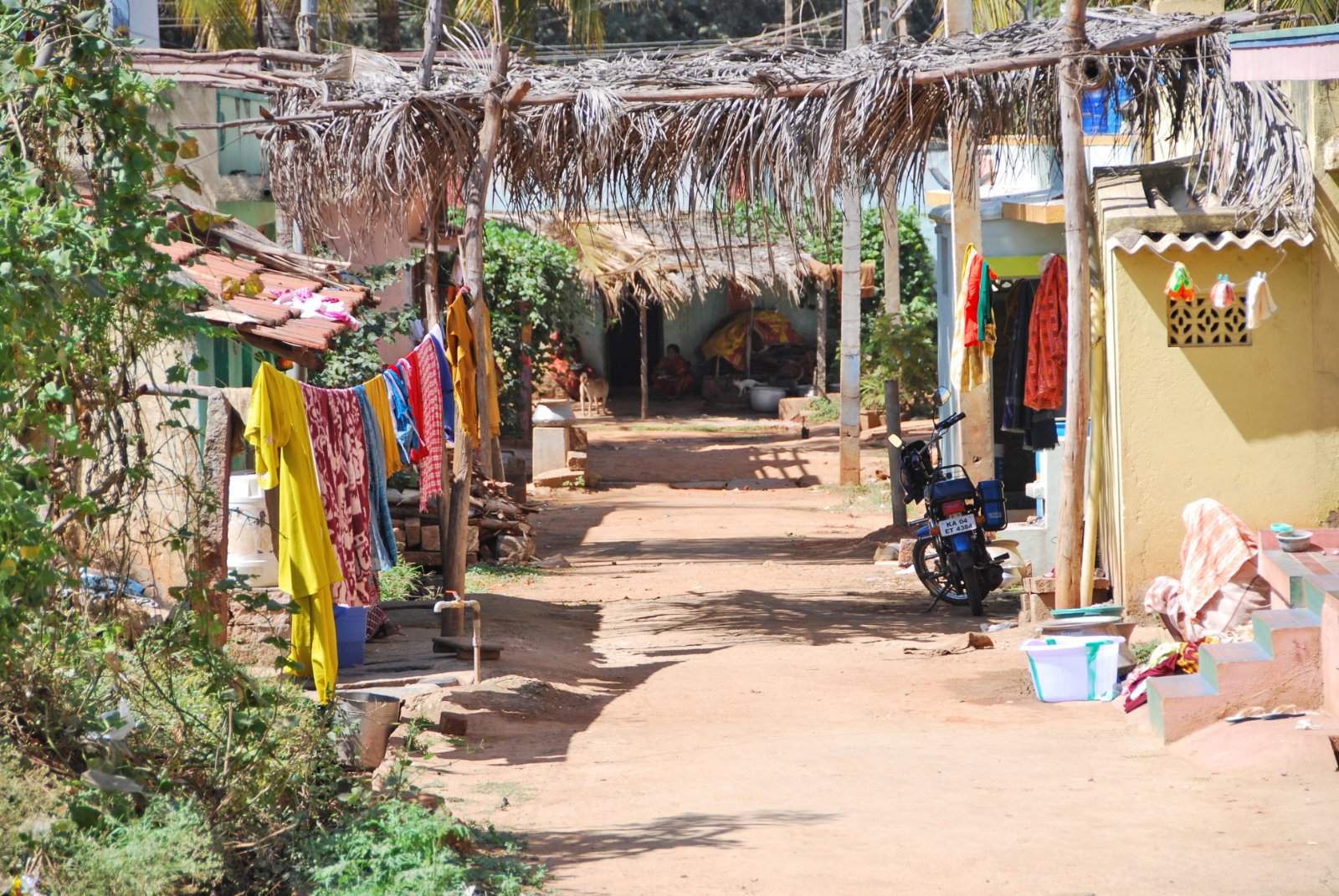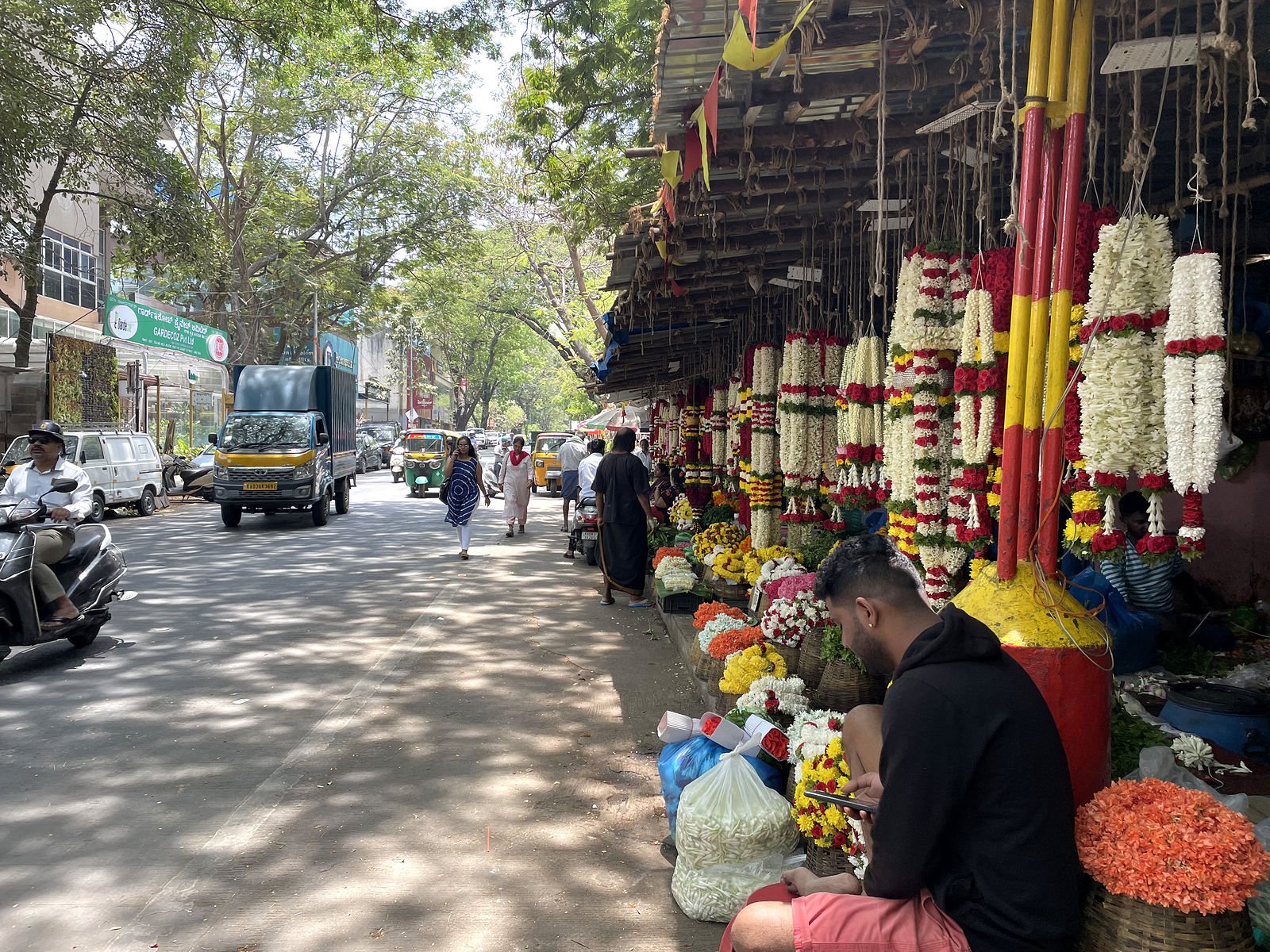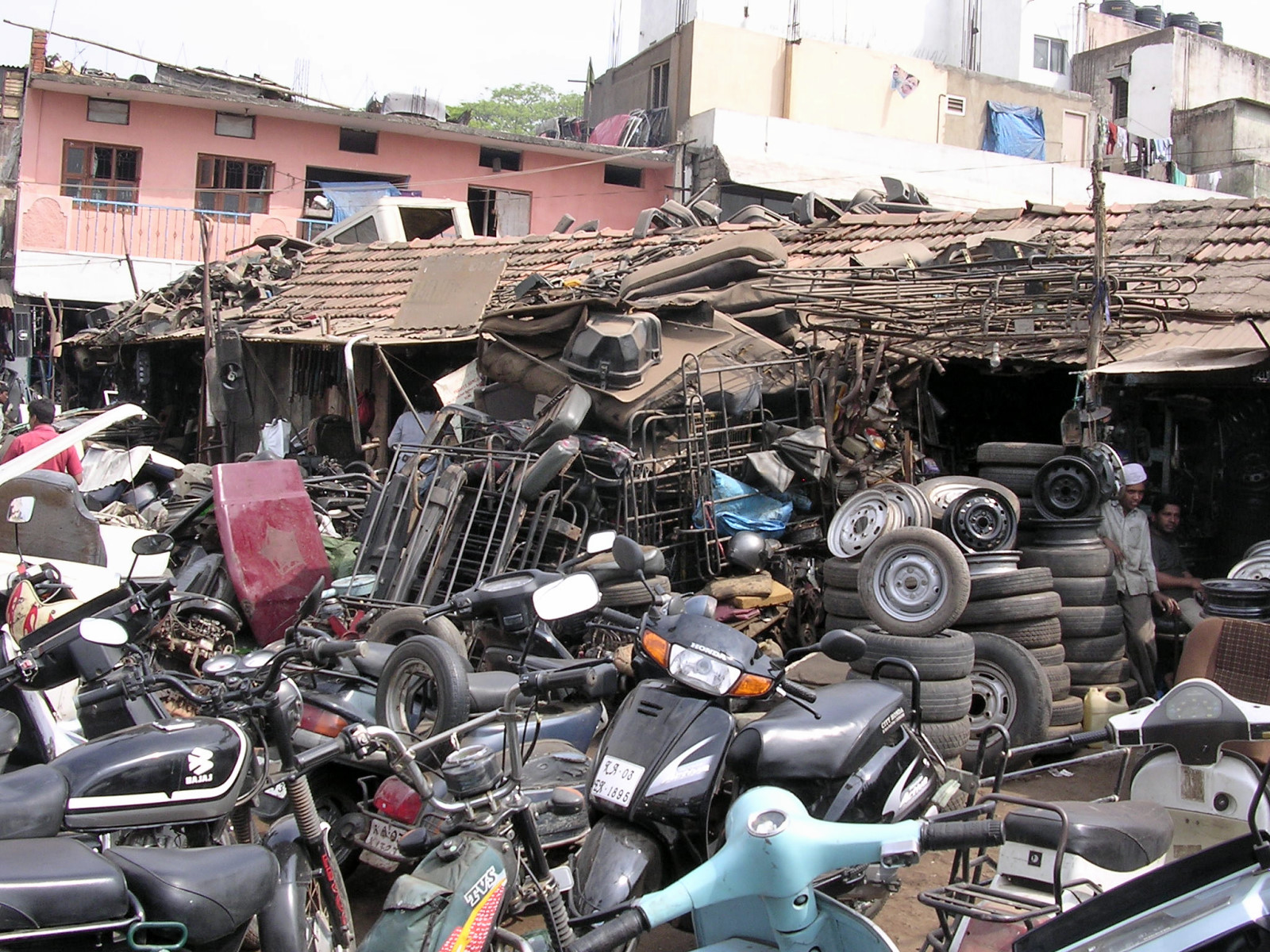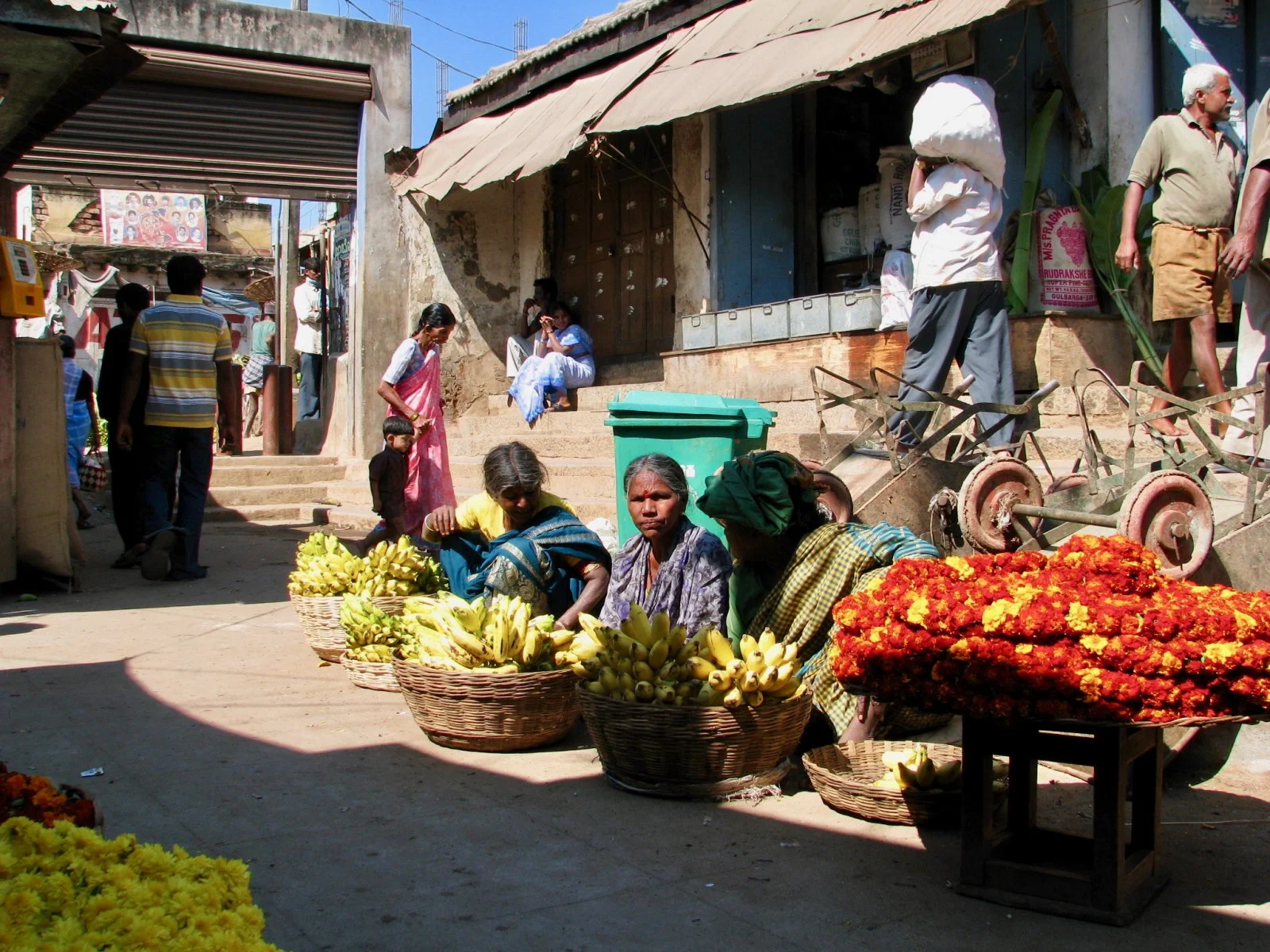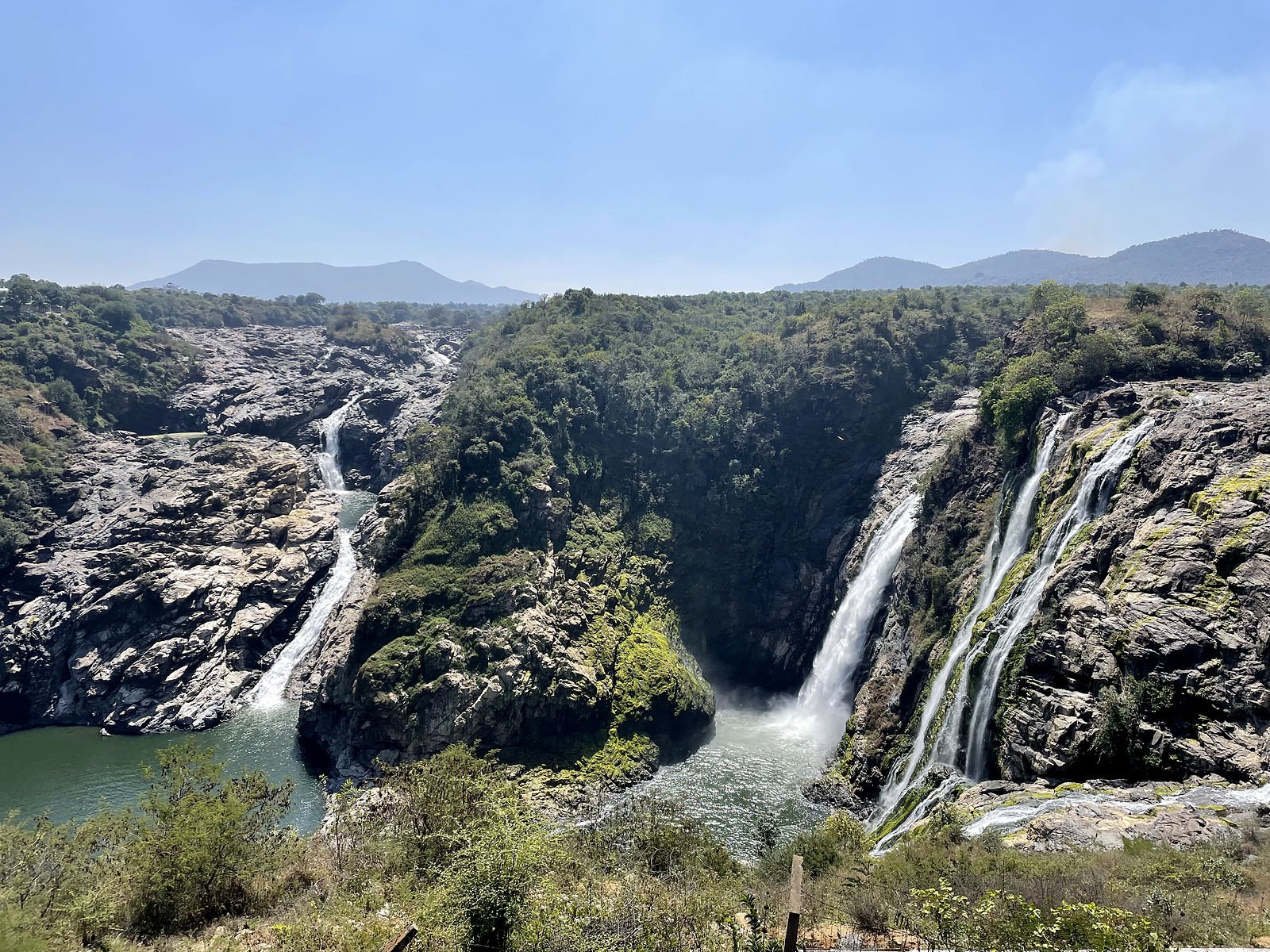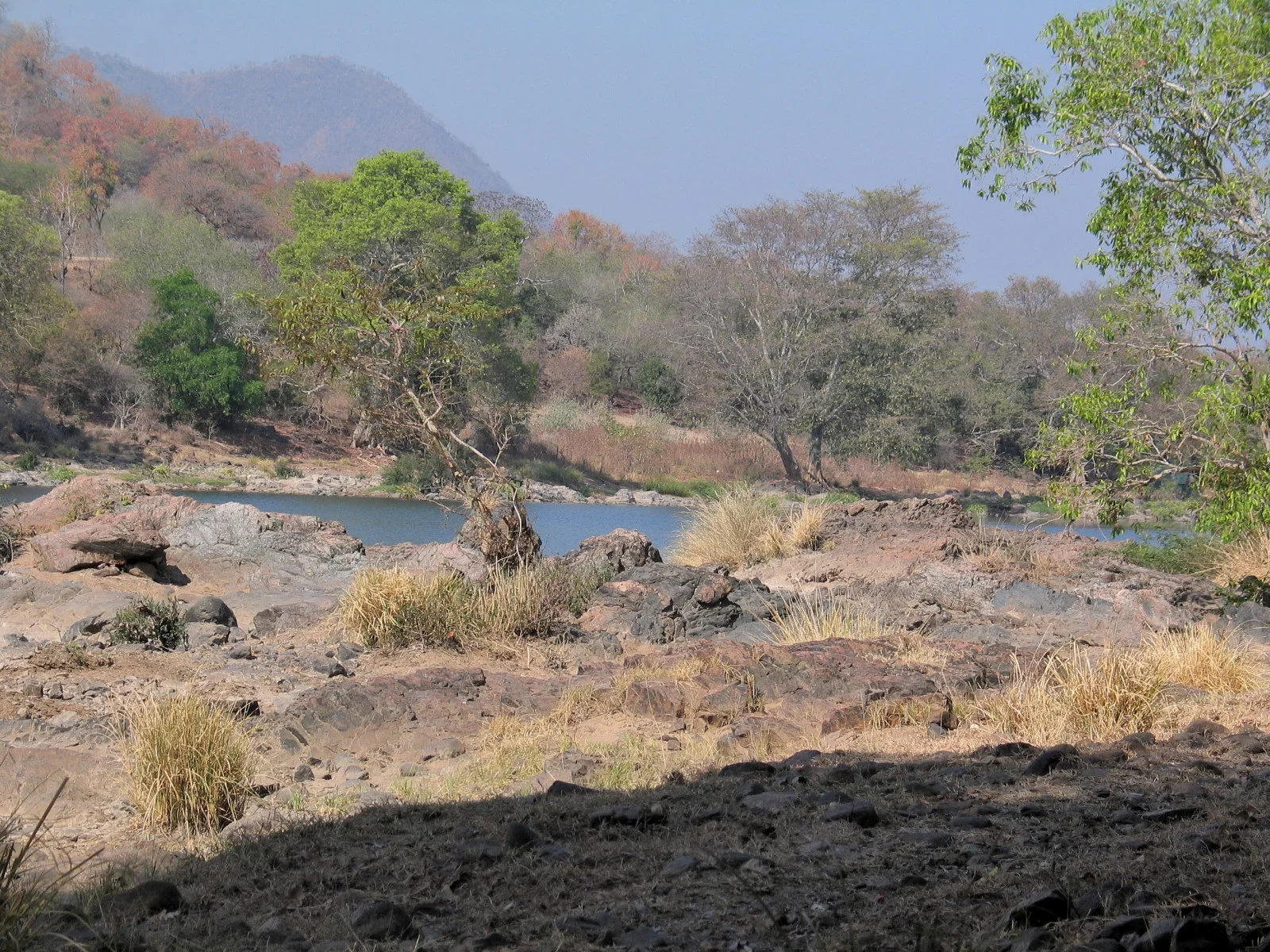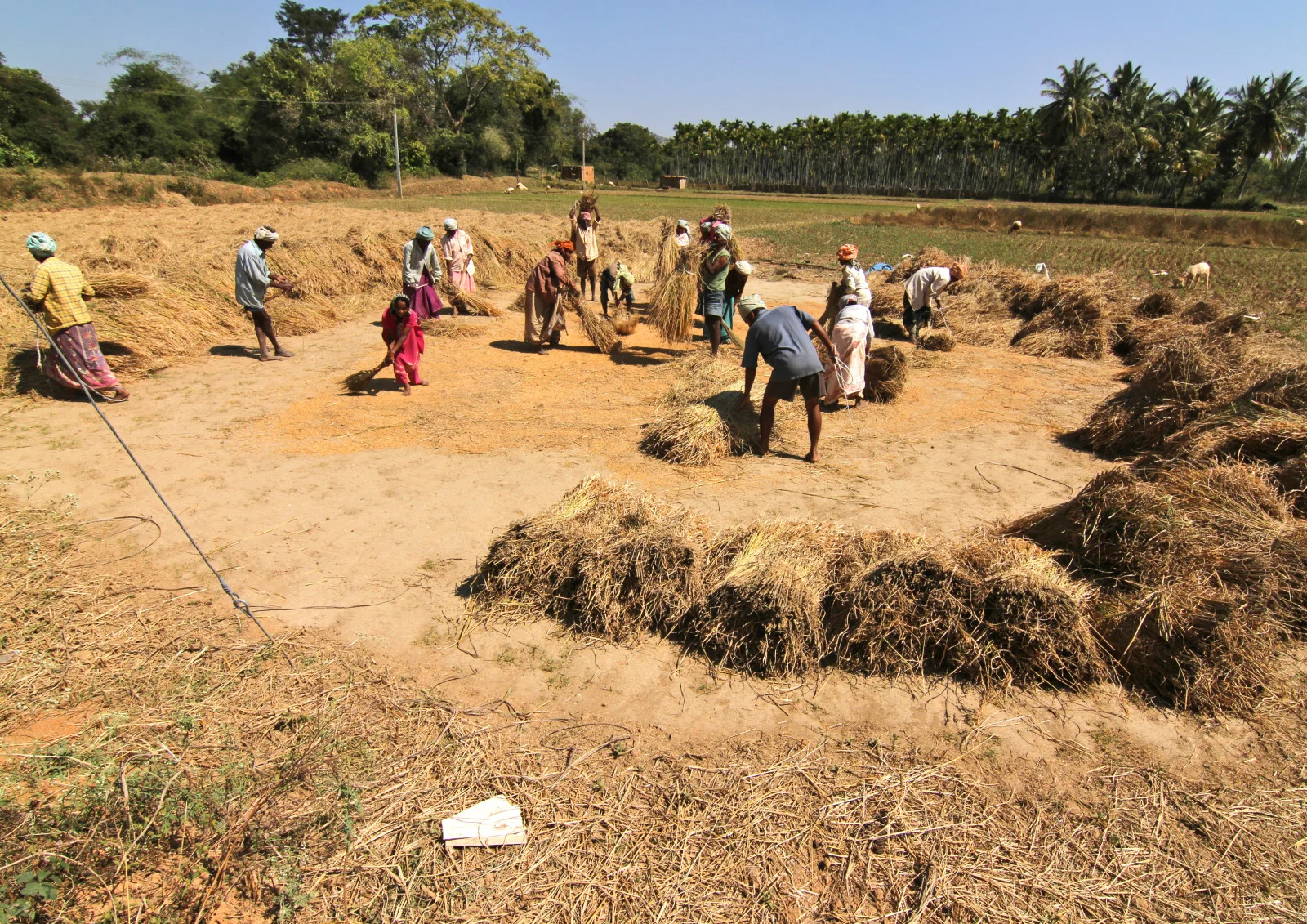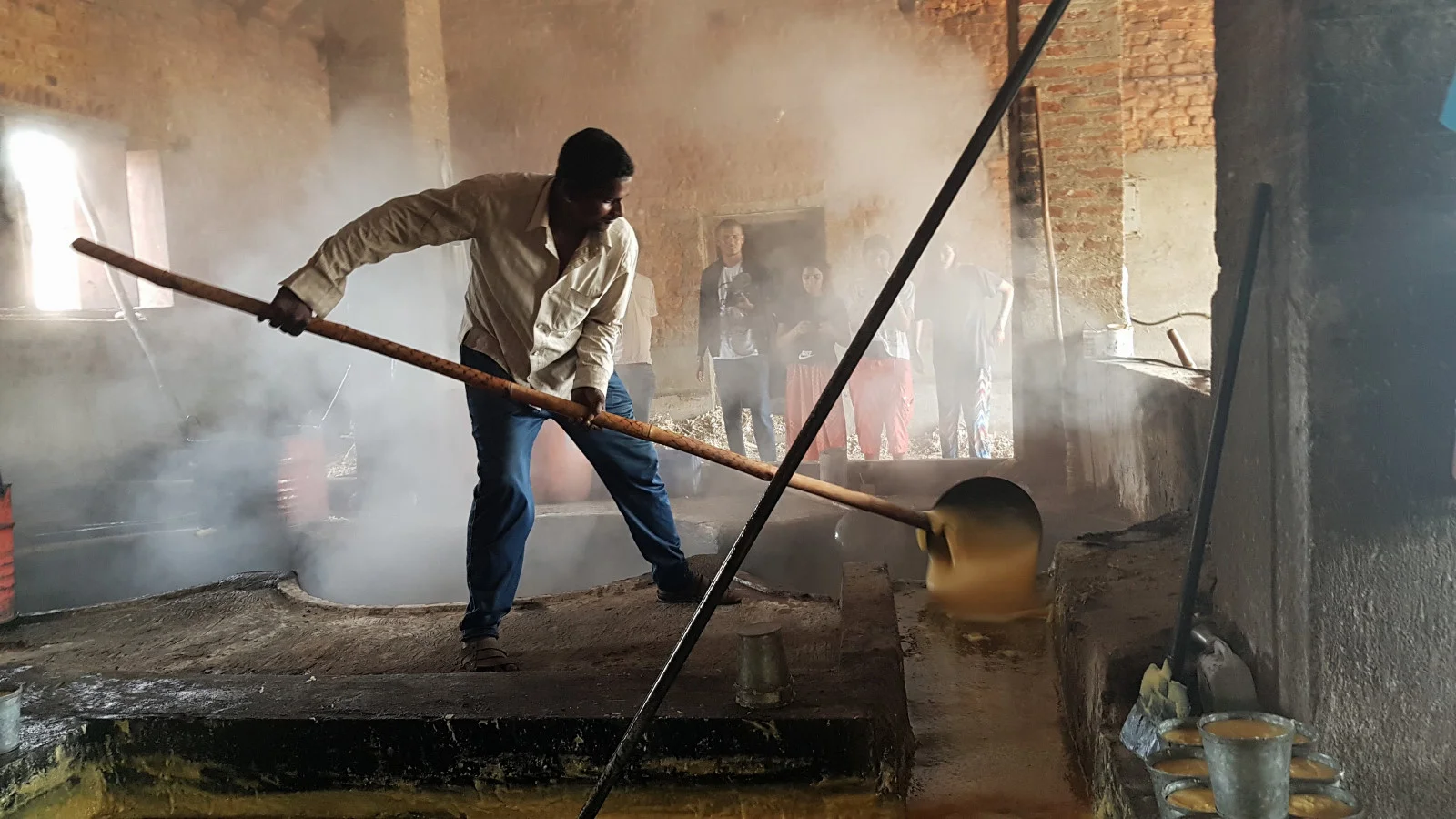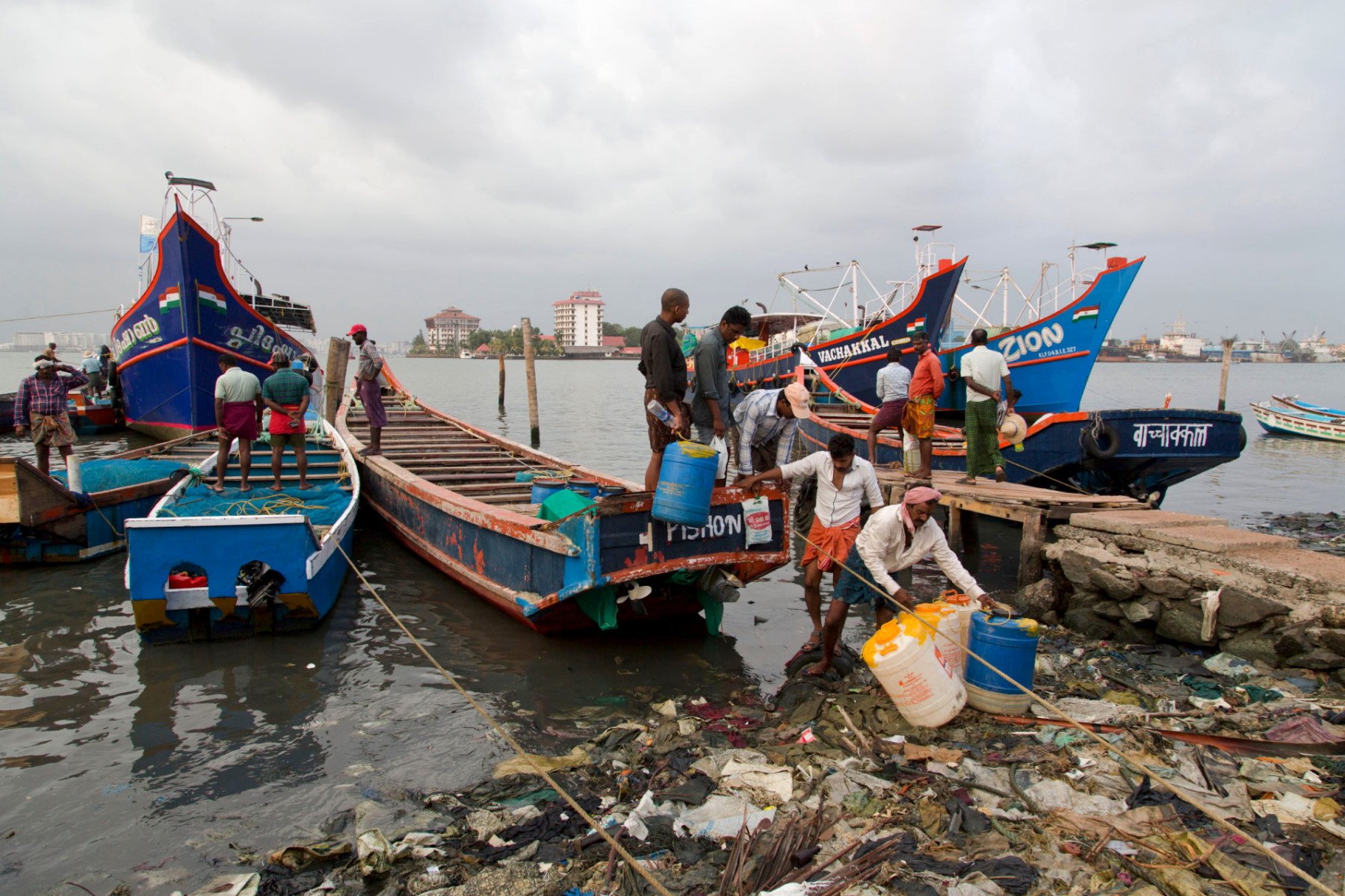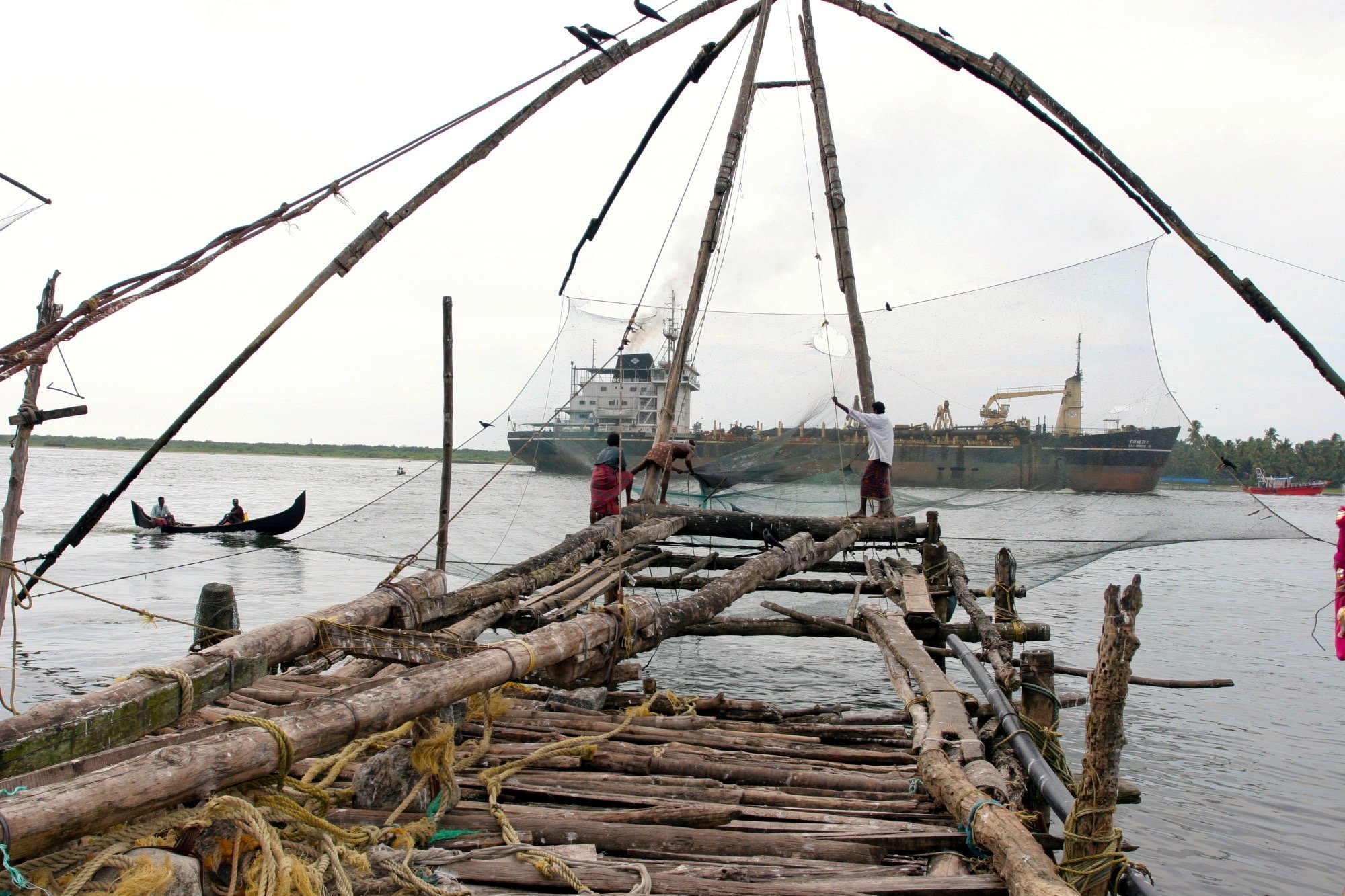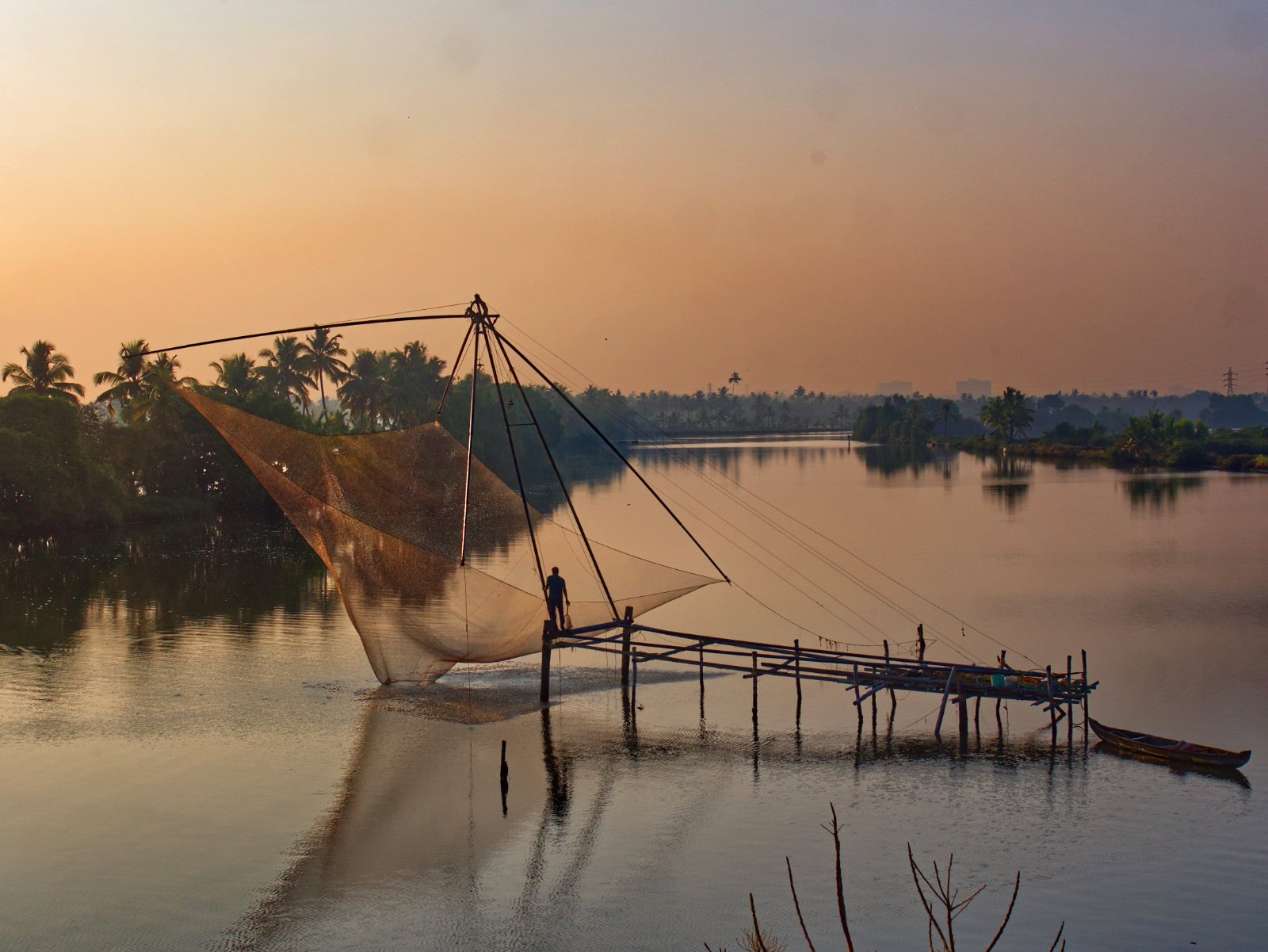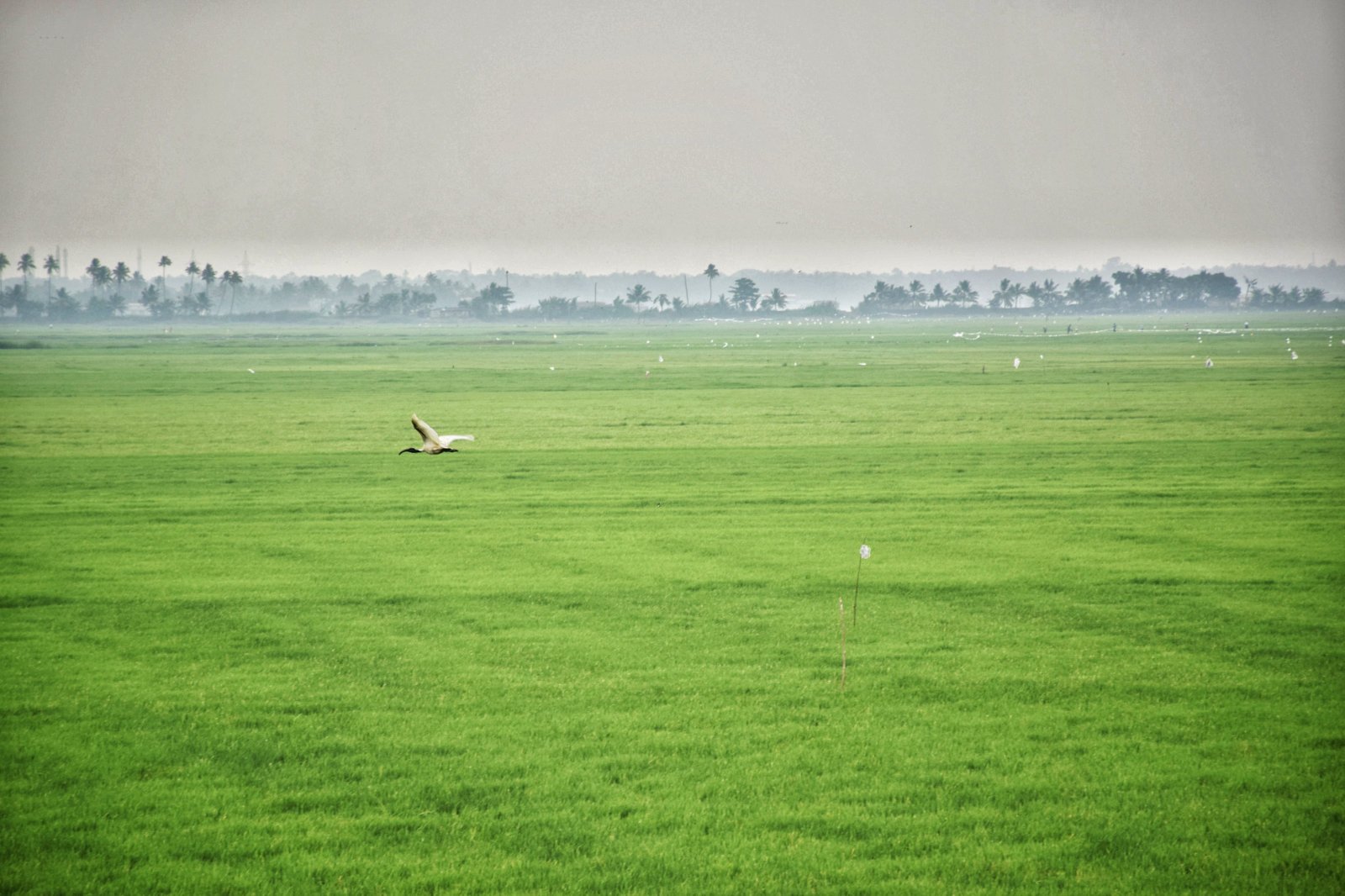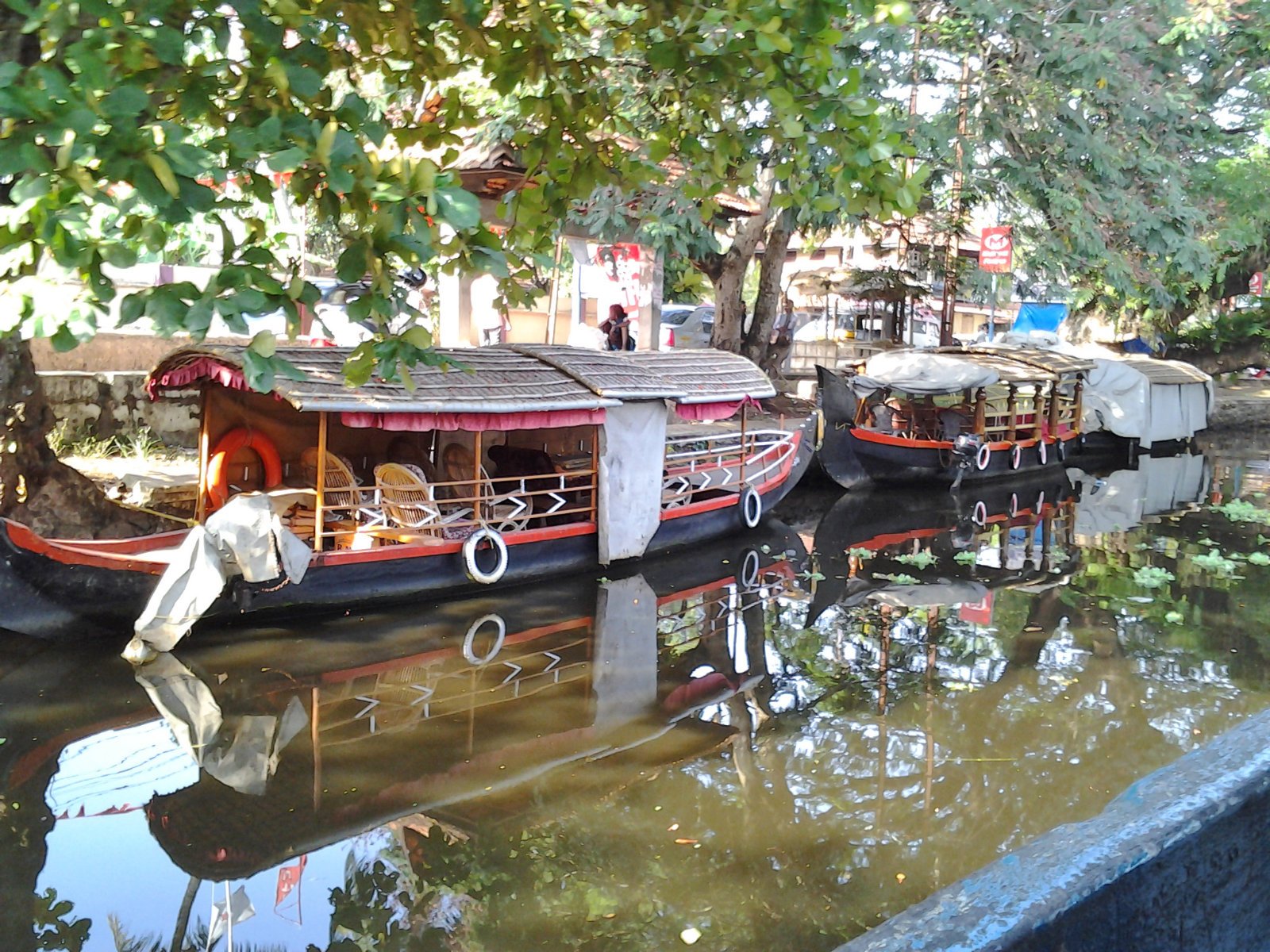-
During this 12 day study visit you will experience the changing geographical, historical and contemporary cultural contexts of three vastly contrasting South Indian Cities in Karnataka and Kerala.
The journey between these cities will take you to rivers, farmland, spice forests and to the coastal backwaters. We will visit religious sites, palaces and forts in each settlement. The visit focusses on specific case study development to support the teaching of KS3 to KS5 Geography.
Please see our KS1-2 geographical enquiry programme which will run concurrently.
-
The study visit will begin with a flight to Bengaluru, where we will gather and introduce the programme. This visit will then have three focus areas: Bengaluru and Mysuru in Karnataka, followed by Kochi in Kerala - three contrasting place study localities in South India:
As we journey we will visit temples, village shrines and the pilgrimage spaces to learn about the wide variety of different religious and cultural traditions within the region and we will visit arts and crafts contexts to be inspired by local artistic skills.
-
Bengaluru - an emerging Mega City:
We will explore the multiplicity of this vast and rapidly changing city and its supporting agricultural hinterland. We will look at rural and urban change and development, visiting education contexts to share alternative perspectives and common challenges.
Mysore/The Cauvery river basin - Royal Heritage and Silk:
We will travel to Mysore, past spaces of religious importance to Jains, Buddiststs and Hindus. We will study the history of the Mysore region and its impact on the creation of the city of Bengaluru. We will explore the agriculture that supports the region sustained by the river cauvery and examine the economic resources that the river feeds; silk, raw sugar cane, and rice, and reflect on issues of water security in the region.
Kochi - A changing coastal port:
We will take an overnight sleeper train to Kochi in Kerela where we will examine the changing nature of what was once the largest port in South India. We will look at the resources of the spices, rivers and backwaters that enabled its growth as a trading centre and now sustain what is now a thriving tourism industry. We will look at how this locality has rebranded and renewed as a tourist destination, and travel by boat along the backwaters before returning by train to Bengaluru.
-
Day 1: 29th July. Arrival and orientation. Arrival, orientation, welcome and introductions. Afternoon of art activities. An evening walk through farms, fields and plantations. Evening location: Guest house in Bengaluru.
Day 2: 30th July. Rural locality study. Walk/Cycle ride through rural areas, visiting shrines, and exploring local markets. Afternoon visit to a vegetable market to buy ingredients, evening cookery workshop, to introduce the range of South Indian cuisine. An evening talk to introduce Bengaluru's change and development. Evening location: Guest house in Bengaluru.
Day 3: 31st July. Urban settlement study. A photography urban transect activity exploring Bengaluru's globalization and development, practicing transferable fieldwork techniques. Visit the old flower market, craft production units and central modern commercial district. Evening location: Guest house in Bengaluru.
Day 4: 1st August. The religions of South India. A drive towards Mysore, stopping at Jain, Hindu and Buddhist religious sites. Continue to the forest sanctuary. Evening location: Jungle lodges in Nilgiri biosphere.
Day 5: 2nd August. The wildlife of the Nilgiri Biosphere. A morning and evening safari with opportunities to spot a range of wildlife including the possibility of tigers. Bird watching walks in the afternoon. Evening location: Jungle lodges in Nilgiri biosphere.
Day 6: 3rd August. Mysuru history. Morning safari. Travel to Mysuru. Visits to the silk factory, the palace, the market or, a day to explore the resources of the river - silk, sugar cane, jaggary. Evening location: Hotel in Mysuru.
Day 7: 4th August. Srirangapatnam. A boat ride in Srirangapatna and visit the summer palace and fort before transferring to the station for an overnight sleeper train to Kerala. Evening location: Sleeper train to Kerala.
Day 8: 5th August. Changing Kochi. Arrive and transfer to Kochi. Learn about change in the region. Walk along the harbour and market, with a possible Kathakali dance performance. Evening location: Hotel in Kochi.
Day 9: 6th August. Kerela backwaters. A days boat ride along Kerala's backwaters, examining spice trading heritage and agricultural resources, and a malabar cookery introduction. Evening location: Hotel in Kochi.
Day 10: 7th August. Kochi’s history. Exploring Kochi's harbor, Fort, Synagogue and Churches, before transferring to the station for an overnight sleeper train to Bengaluru. Evening location: Sleeper train to Bengaluru.
Day 11: 8th August. Bengaluru and shopping. Arrive back in Bengaluru. Rest before visiting commercial district near to the hotel for shopping opportunities. Evening location: Guest house in Bengaluru.
Day 12: 9th August. Reflecting and creating resources. Sharing ideas for teaching and learning materials. Discuss future collaborationd and debrief. Evening location: Guest house in Bengaluru.
Day 13: 10th August. Return flight. Transfer to airport in the early hours of the morning and return to the UK by lunchtime the same day.
-
AIMS
The visit will equip teachers with knowledge and understanding of geographical themes, through experience, so that you can teach about each locality with authenticity and understanding - alongside ideas for taking back the learning.
Review and renew resources for teaching contrasting case studies.
Enrich ideas for how to teach about distant changing places.
Gain understanding of wide geographical themes to teach with authenticity and experience.
Develop knowledge of causes and impacts of change within embedded traditions.
Connect and engage with new places and people.
Work together with colleagues to develop broader perspectives on teaching and learning.
Build capacity and confidence in leading learning inspired by supported sustainable educational travel.
Our aim is that this journey is the start of a broader project for sharing ideas, working together and developing resources to enrich, renew and inspire the teaching about wider global issues and distant places.
GAINS:
Personal enrichment: The visit aims to provide a space and time for personal enrichment. The aim will be to provide teachers a break from the action of teaching, and whilst seeing and experiencing a wide range of new places and locations to gain energy and ideas.
Professional inspiration: Place study resource development: The journey will involve a focus on the development of contrasting studies for the teaching about distant and changing places within the geography curriculum. The focus will be on two distinct place-based case studies which are vastly different in character and identity. We will reflect on the internal and external historical, economic and societal factors which influence this difference and which impact on change over time. In each location we will examine how these changing places are perceived, shaped and represented, looking at the tools, objects and symbols that can tell stories of a place. You will learn about the historical connectivity and current trade relations impacting change, and the current issues and challenges facing the locations we visit, specifically regional developmental issues of water resource and food security. We will examine causes and impacts, and learn about specific examples of responses and strategies for management, with practical resource gathering in each location.
Practical explorations and enquiry based fieldwork: The visit will inspire ideas of how to ‘take back’ the travel experience to teach about the topics of the trip through enquiry-based learning activities. Throughout the journey, we will focus on the dynamics of change within tradition, and how these themes can be taught in schools. We will reflect on patterns and processes in the contrasting regions that we visit, and share enquiry skills for enhancing the teaching of these themes. You will be encouraged to engage in photograph projects, alongside journaling as a travelling tool. We will look at how to conduct derives, engage in participant observation activities and gather artefact-based resources.
Develop confidence in leading learning in distant places: The visit will develop confidence to travel with student groups, building connections for where and how this can be done, and enabling capacity in leading study visits to such places in the future.
Cross-curricular focus: Despite the evident focus on the Geography curriculum, this visit will support the teaching of many other subjects across the primary and secondary curriculum: Visits to temples, shrines and religious buildings to develop an understanding of the myths, stories and religious traditions of South India - Ancient and modern Hinduism, Islam, Jainism, Judaism, and Christianity; experiences of traditional and contemporary arts and crafts contexts as they change and develop; introduction to local music and dance traditions; a focus on spices, food and cuisine; explorations and ancient settlements and visits to historical sites.
Connecting and collaborating: As a group, you will have time to share ideas about teaching cross-curricular themed topics using place-based resources inspired by the activities and the journey. You will have an option to visit some of our partner schools and connect with teachers to hear about India’s changing educational context and collaborate on shared common themes, with options of time spent working with students.
-
If all that is proposed is included, the cost will be £1800 per person.
This cost will include:
Accommodation: All accommodation for the full two weeks in India in simple but comfortable homestays and hotels.. Please let us know if you would like to have a single room supplement (where possible) at £350 additional cost.
Transport: All in-country transport, in cars, minibuses and overnight trains.
Breakfasts and lunches:. All breakfasts and lunches are included which will usually be vegetarian South Indian meals, and bottled drinking water will be provided throughout. Evening meals are not included, which allows for flexibility and choice during evenings.
Preparation processes and our pack: We provide a detailed preparation process including a pack for supporting your planning and preparations, and meetings before the trip - details of our preparation process are found below.
Resources: We provide a printed resource booklet for guidance, contacts and safety whilst travelling, as detailed below.
Guidance and facilitation: Guidance and support throughout the journey from the point of booking until the end of the journey with us in India.
Financial security: Your money is safe with coverage provided through Travel Vault. Please see the details provided on our financial coverage and liability insurance.
This cost will not include:
The return flight to India: This is usually around £600- 700, but costs can vary depending on your choice of carrier and the time of year.
Travel insurance: You will need to purchase appropriate travel insurance for the flight and the duration of your stay in India. This is mandatory for all participants. It is rarely more than £30 per trip.
Visa for India: This costs about £30. This is quite simple compared to previous years. Available online, and must be done by individuals. We provide detailed guidance on this in our preparation pack.
Evening meals: Please allow a food budget for evening meals which are not included in the cost - we find that participants enjoy relaxing in the evenings and have a range of choices for dinners, so this will be part of your personal expenditure.
Cultural/ wildlife site entrance, and tips for guides: These are very difficult to budget for as sometimes availability and price vary from place to place, and keeping this out of the budget allows for flexibility in the programme and choice of activities.
We hope that this helps with making your plans. Please do be in touch with any questions about these costs.
FAQ’s and preparation
Please check our preparation information for details that apply to all our travel projects. The questions and answers below are specific to this project
-
You will stay in simple but comfortable hotels, guest houses, and homestays, which have shared space for discussions and evening get-togethers. Most of our accommodation will be in twin shared accommodation, and if you wish to have a single room please let us know. The details of the accommodation for each location will be provided in the preparation pack and at our meeting before the trip.
-
The majority of travel will be by mini-bus and taxi. There will be two overnight sleeper train journeys, and we will use autorickshaws for local transport. The journey will involve jeep safaris at two wildlife reserves.
Some days will involve very early mornings, and some days will involve a lot of travelling from one location to another. The process of some days will involve the journey at the heart of the activities, as opposed to simply a means to getting somewhere. You will be able to ask questions at each place that we stop, and there will be opportunities for your unanswered questions to be cleared at the end of each journey. Questioning, enquiry, exploring, and observing are all very much part of the process.
-
Kiran Sahi and Imogen Sahi from the Stepwell Team will lead this trip alongside Susan Knight who is an expert in educational travel with many years of experience working with the Geographical Association international special interest group. This trip is a guided and supported travel experience and you will be accompanied by our team throughout. They will coordinate with you before the trip to talk through the process of the journey and how to prepare. They will meet you on arrival in India and will guide you throughout the journey to interpret, explain and facilitate the journey.
-
Our journeys in India require that participants book a return flight to India independently, timed to arrive and depart at the relevant Indian airports according to the programme attached. This allows for flexibility of flight costs and carriers and allows participants to travel before/after the journey in India if they wish. We require that you purchase a flight that includes ATOL protection.
-
July and August are typically in the monsoon season in South India. You can expect cooler temperatures than at other times of the year and it is very likely to rain heavily. However, there can be some variations in weather conditions between Bengaluru and the Coastal area of Kochi due to their specific geographical locations.
We are currently filling this trip. Places will be confirmed as we receive interest, so please be in touch if you would like to join.
To register interest and find out more click on the button below…
or email us directly at info@stepwellproject.com and we will be in touch with further details.
View our other teacher study visits…

